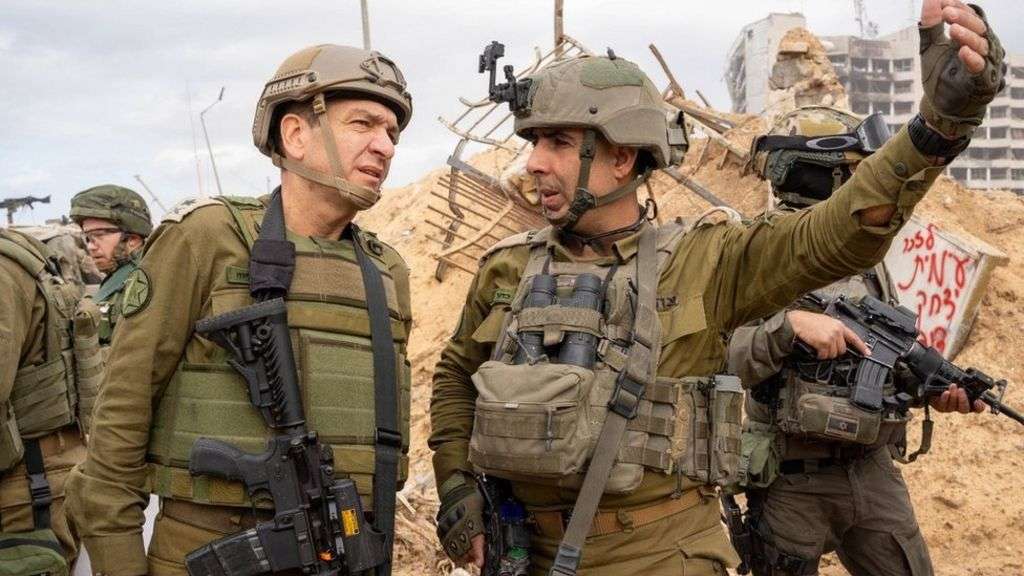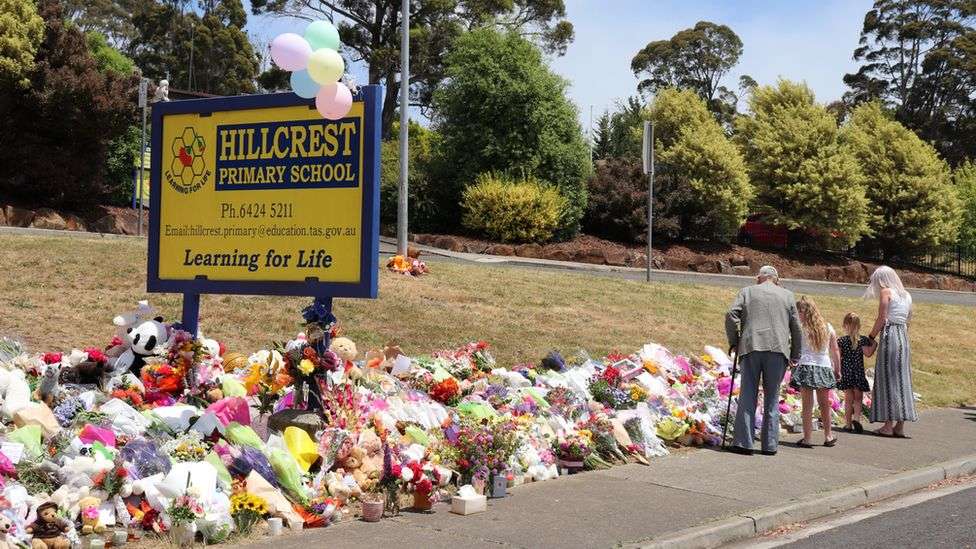The Israeli military's intelligence chief has resigned, saying he took responsibility for the failures before Hamas's attack on Israel on 7 October. The Israel Defense Forces (IDF) said Major General Aharon Haliva would retire once his successor was selected. He acknowledged in a letter that his intelligence directorate "did not live up to the task we were entrusted with". He is the first senior figure to step down over the attack, which was the deadliest in Israel's history. Israeli military and intelligence officials missed or ignored multiple warnings before hundreds of Hamas gunmen breached the Gaza border fence that day and attacked nearby Israeli communities, military bases and a music festival.
About 1,200 Israelis and foreigners - mostly civilians - were killed and 253 others were taken back to Gaza as hostages, according to Israeli tallies.
Israel responded by launching its most intense ever war in Gaza with the aims of destroying Hamas and freeing the hostages.
More than 34,000 Palestinians in Gaza - most of them children and women - have been killed in the conflict, the territory's Hamas-run health ministry says.
A statement put out by the IDF on Monday said Maj Gen Haliva had "requested to end his position, following his leadership responsibility as the head of the intelligence directorate for the events of 7 October".
In his resignation letter, the general wrote: "I carry that black day with me ever since, day after day, night after night. I will carry the horrible pain of the war with me forever."
He also called for the establishment of a state commission of inquiry "that can investigate and find out in a thorough, in-depth, comprehensive and precise manner all the factors and circumstances that led to the difficult events".
"Everything I did during my service in the IDF was for the sake of the people of Israel and the State of Israel," he added.
Maj Gen Haliva's resignation had been anticipated, given that he had stated 10 days after the attack that he bore full responsibility for the intelligence failures of his directorate.
However, his departure is expected to be followed by further resignations among Israel's senior military and intelligence commanders, with other officials having admitted errors and oversights in the run-up to 7 October.
The IDF's chief of staff, Lt Gen Herzi Halevi, and the director of the Shin Bet security service, Ronen Bar, have both taken responsibility for failing to protect Israelis but decided to stay on for the war in Gaza.
Monday's news may also add to the pressure on the veteran Israeli Prime Minister, Benjamin Netanyahu.
Up to now, Mr Netanyahu has said only that he will answer tough questions about his own role, without acknowledging any responsibility, and has sought to deflect blame onto his security chiefs.
He has said that a full inquiry should wait until the war in Gaza is over.
Opposition leader Yair Lapid said on X (formerly Twitter) that Maj Gen Haliva's decision to resign was "justified and honourable", but added that Mr Netanyahu "should have done the same".
In a video statement on Sunday, the prime minister lamented that the 133 people still held in Gaza would not be around the Seder table with their loved ones for the Jewish festival of Passover.
"Their suffering and the suffering of their families rends our heart and only strengthens our resolve to bring them back," he said.
He claimed that Hamas had "hardened its conditions" for a hostage release deal and threatened to "strike it with additional painful blows" in response.
"In the coming days, we will increase the military and diplomatic pressure on Hamas because this is the only way to free our hostages and achieve our victory," he added.
Mr Netanyahu did not specify the next steps, but he has repeatedly said that Israeli forces intend to launch an operation in the southern city of Rafah.
The US and UN have warned an all-out assault on Rafah, where 1.5 million displaced Palestinians are sheltering, could have catastrophic consequences.








